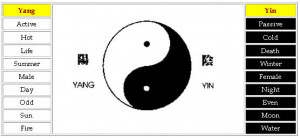

Chinese: Mandarin form of the surname 仰 meaning ‘face upward’ in Chinese: (i) from the personal name of Yang (卬) style name of a prince of the state of Qin (located in present-day western Shaanxi province) son of King Hui of Qin (ruler of the state of Qin died 311 BC). Chinese: Mandarin form of the surname 養 meaning ‘feed’ in Chinese: habitational name from the placename Yang (養) the name of a fief (located in Shenqiu in Henan province) in the state of Chu granted to Yan Yu and Zhu Yong former princes of the state of Wu (located mainly in present-day Jiangsu and Anhui provinces). Tu's descendants adopted the placename Yang She (羊舌) as their surname and later shortened it to 羊. (ii) shortened form of the compound surname Yang-She (羊舌) which was originally the name of a fief (located in present-day Hebei province) granted to an official in the state of Jin (located in present-day Shanxi province) called Tu the great-grandson of the Duke Wu of Jin (ruler of the state of Jin reigned 716–677 BC). Chinese: Mandarin form of the surname 羊 meaning ‘goat’ in Chinese: (i) from Yang Ren (羊人) the name of an official post during the Western Zhou dynasty (1046–771 BC) in charge of sacrifices. (iii) from Yang (陽) the name of a fief (located in Shishou in Hubei province) granted to Gai (died 519 BC) a prince and an official in the state of Chu during the Spring and Autumn period (770–476 BC). (ii) from the placename Yang Fan (陽樊) the name of a fief (located in Jiyuan in Henan province) granted to the youngest son of King Jing of Zhou (died 520 BC). After it was annexed by the state of Qi (located in present-day Shandong province) in about 676 BC people from the state adopted 陽 the name of the state as their surname. Chinese: Mandarin form of the surname 陽 referring to ‘yang’ in Chinese philosophy: (i) from Yang (陽) the name of an ancient state (located in present-day Shandong province). (iv) traced back to certain other minority ethnic groups in ancient northern and southern China. (iii) from the Mo Hu Lu (莫胡盧) and Yu Chi (尉遲) families members of the Xianbei ethnic group who changed their original surnames to Yang (楊) during the Northern Wei dynasty (386–534 AD). (ii) from Yang Hou (楊侯) (‘Marquis of Yang’) a title given to Bo Qiao son of the Duke Wu of Jin (known as Duke Wu of Quwo 754–677 BC).


Later some descendants from the state adopted 楊 as the surname while others adopted 揚 (another written form) as the surname. The state was annexed by the state of Jin during the Spring and Autumn period (770–476 BC). Chinese: Mandarin form of the surname 楊 meaning ‘poplar’ in Chinese: (i) from the placename Yang (楊 also written as 揚) the name of a state (located in Hongdong in present-day Shanxi province) originally granted to Shang Fu also known as Yang Hou (楊侯 ‘Marquis of Yang’) son of King Xuan of Zhou (reigned 827–782 BC).


 0 kommentar(er)
0 kommentar(er)
